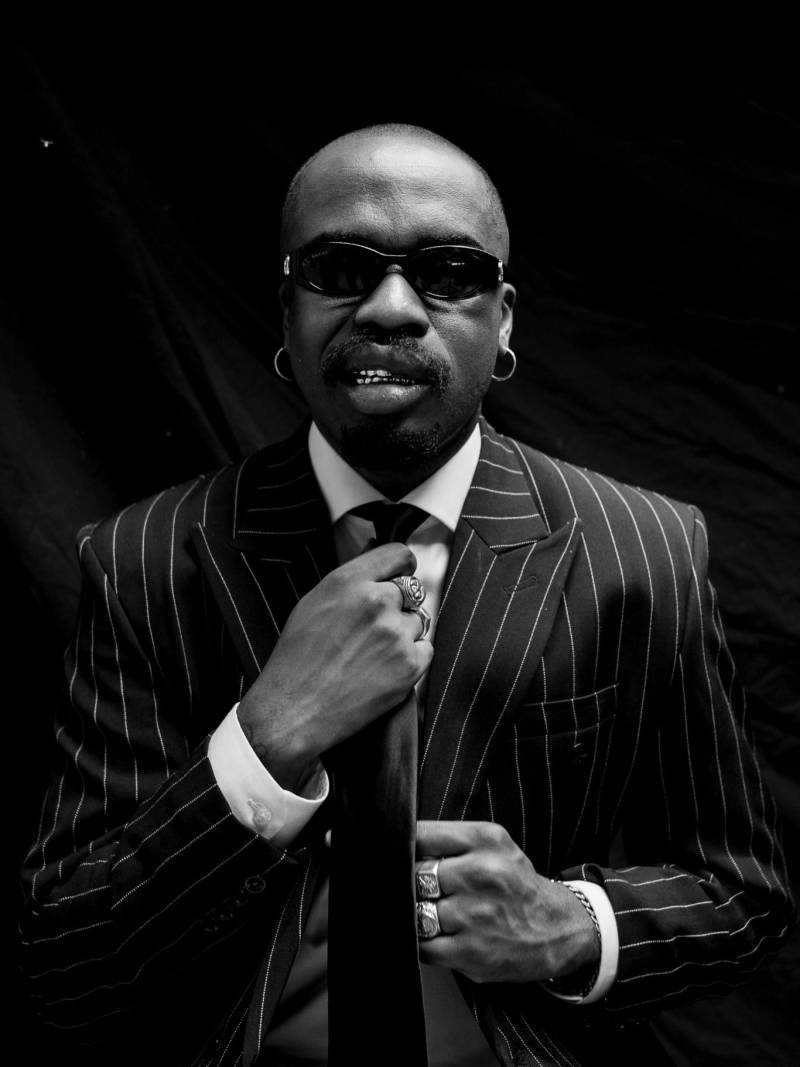Nollywood pulses at the heart of Africa's cinematic landscape, evolving from modest origins into a dynamic global phenomenon that enchants viewers with its gripping narratives and unfiltered essence. At the center of this remarkable journey are the visionary directors whose artistry has elevated Nigerian cinema into a vibrant hub of innovation and cultural pride. These gifted narrators are not merely creating films; they are weaving enduring legacies, transcending boundaries, and redefining the art of storytelling with each scene they capture. In a realm where the narrative reigns supreme, these directors have secured their illustrious stature through an unwavering devotion to their art, distinctive visual styles, and a fervent commitment to authentic African storytelling that resonates on a worldwide scale. From sweeping dramas to joyful comedies and poignant social commentaries, they have voiced the aspirations, challenges, and victories of the Nigerian spirit, enchanting audiences far beyond the shores of the continent.

In the vibrant tapestry of Nollywood, Moses Inwang emerges as a visionary director and creative alchemist, crafting narratives that ignite the imagination and provoke thought. His films are not merely stories; they are bold explorations that challenge the status quo, infused with emotional depth and social resonance. Through works like Alter Ego, where he unflinchingly confronts themes of mental health and sexuality, and Cold Feet, a riveting saga of love entwined with betrayal, Inwang captures the complexities of human experience, ensuring that his narratives echo in the hearts of viewers long after the final scene. His artistry lies in an exceptional ability to intertwine drama with moral introspection, garnering both critical acclaim and heartfelt admiration from audiences. Inwang's storytelling is distinguished by his fearless engagement with controversial subjects, illuminating societal challenges while preserving the allure of cinematic entertainment. This distinctive fusion of enlightening themes and mesmerizing visuals solidifies his status as one of Nigeria’s most revered and avant-garde filmmakers. Beyond his cinematic accolades, Inwang’s unwavering passion for the craft shines through in every endeavor. Whether delving into the intricacies of human flaws or examining the contours of social justice, his films resonate deeply, touching the very core of the audience. As a luminary in Nollywood’s storytelling landscape, Moses Inwang stands as a beacon of inspiration for emerging filmmakers, demonstrating that cinema can serve as both a reflection of society and a powerful catalyst for change.

Jade Osiberu emerges as a visionary voice in Nollywood—a bold architect of narratives who embraces audacity and dynamism. She weaves tales that resonate deeply, bringing forth the essence of Nigeria's cultural tapestry while adding a contemporary twist that breathes new life into the cinematic landscape. From her vibrant inception with Gidi Up (2013), a web series that insightfully captured the fervor, aspirations, and heartaches of Lagos' youth, Jade quickly caught the attention of audiences and critics alike. Her keen ability to encapsulate the rawness of everyday life, balancing struggles with triumphs, marked her as a noteworthy storyteller destined for greatness. Yet, it was with Isoken (2017) that Jade truly carved her niche—a romantic comedy that masterfully navigated the whimsical and often intense pressures of singlehood in one’s 30s. This film resonated profoundly with viewers, not merely for its relatable narrative but for its vibrant depiction of modern Nigerian women as they dance through the complexities of love, culture, and familial expectations. With Sugar Rush (2019), Jade elevated her artistry further, challenging norms and infusing her work with a delightful blend of action and comedy. The film was a jubilant celebration of creativity, pushing boundaries and inviting audiences to experience joy without hesitation. And as if to outdo herself yet again, she introduced Gangs of Lagos (2023), an ambitious crime thriller that solidified her standing as a multifaceted storyteller, boldly exploring the darker veins of narrative that few would dare to tread. Jade Osiberu's journey through the realms of filmmaking is a testament to her passion and ingenuity. She is not merely crafting films; she is sculpting cultural milestones that resonate with the soul of a generation. As Nollywood forges ahead into new territories, one can be assured that Jade will remain a beacon of innovation, illuminating the narratives we never knew we craved.

Izu Ojukwu is a visionary in the realm of cinema, whose narrative artistry has secured his stature as a luminary among Nollywood’s directors. With an unwavering gaze for detail and an invigorating love for Nigerian history, Ojukwu breathes life into the past, wrapping it in colors that mesmerize audiences far and wide. His films transcend mere entertainment; they are rich, immersive tapestries that whisk viewers through time, seamlessly intertwining historical richness with heartfelt storytelling. One of his most lauded creations, 76, stands as an exquisite showcase of historical drama, unraveling the emotional upheaval and political conspiracies during Nigeria’s fateful 1976 coup. The film garnered widespread acclaim for its painstaking attention to authenticity, showcasing Ojukwu’s exceptional talent in rendering history not merely as a tale but as a poignant, relatable journey. He embraces the depth of Nigeria’s heritage, meticulously uncovering narratives that resonate through the ages. Ojukwu’s fervor for safeguarding and elevating Nigerian culture shines brilliantly through his diverse filmography, which includes iconic works like Sitanda and Amina. His remarkable ability to intertwine intense drama with a celebration of cultural pride distinguishes his creations, infusing them with a unique essence that educates and entertains in equal measure. Adorned with a multitude of awards and accolades, Izu Ojukwu stands as an indomitable presence in Nollywood. His unwavering commitment to authenticity and his passion for impactful storytelling continue to inspire budding filmmakers. Whether he is transporting us to bygone eras or boldly confronting social mores, Ojukwu’s oeuvre is a compelling testament to the transformative power of storytelling at its finest.

Related article - Uphorial Sweatshirt
Kemi Adetiba is a vibrant storyteller, a luminary of the cinematic realm, and a bold pioneer in the world of Nollywood. With her daring narratives and innovative cinematography, she weaves magic into the fabric of Nigerian film. Adetiba possesses a rare gift for transforming ordinary tales into extraordinary epics, breathing new life into the cinematic landscape. Her journey soared with the release of The Wedding Party (2016), a romantic comedy that not only broke box office records but also became a cherished classic. Yet her ambitions reached even higher—she followed this success with the audacious King of Boys (2018), a gripping political crime thriller that captivated audiences and reshaped Nollywood’s narrative possibilities. The film’s triumphant reception solidified her as one of Nigeria’s most courageous directors, and its sequel, King of Boys: The Return of the King (2021), confirmed her storytelling finesse was no mere happenstance. What truly distinguishes Kemi is her unapologetic desire to delve into profound themes and create multifaceted characters, particularly fierce and resilient women. She artfully intertwines drama, action, and raw emotion while staying true to the cultural nuances that resonate deeply with her audience. Whether exploring love, ambition, or redemption, Adetiba’s narratives leave a lasting impression and echo in the hearts of many. Beyond the silver screen, she is also an acclaimed music video director, crafting visual wonders for artists such as Banky W and Tiwa Savage. Her unique flair for marrying music with narrative strengthens her status as a force of creativity. With a cascade of accolades and an eager audience anticipating her next endeavor, Kemi Adetiba stands as an unstoppable beacon of inspiration, encouraging a new generation of filmmakers to dream boldly and create with fearless passion.

In the vibrant landscape of Nollywood, Kunle Afolayan stands as a cinematic luminary, a visionary director whose artistry weaves tales rich in passion, culture, and a sprinkle of enchantment. Born into the revered Afolayan filmmaking lineage, he transcends mere direction; he is a storyteller who harmoniously entwines tradition with innovation, earning accolades as one of Nigeria’s most distinguished filmmakers. His ascent began with the poignant Irapada (2006), which captivated audiences and revealed his innate storytelling prowess. However, it was The Figurine (2009) that solidified his legacy, merging supernatural folklore with contemporary narratives, and securing multiple awards along the way. Since that breakout moment, Kunle has continued to venture fearlessly, pushing the boundaries of Nollywood cinema with every new endeavor. Whether delving into cultural depths in October 1 (2014), exploring family dynamics in Phone Swap (2012), or embarking on historical intrigues within Aníkúlápó (2022), Kunle’s films emerge as masterful creations that celebrate the rich tapestry of Nigerian heritage while universally resonating with themes of the human experience. His meticulous attention to detail and commitment to authenticity pierce through each frame, resulting in an evocative visual symphony. With Netflix successes like Citation (2020) and Swallow (2021), he forges new paths, crafting narratives that echo across the globe, all while remaining anchored in African traditions. Kunle’s tireless work ethic and creative brilliance have drawn both local and international acclaim, marking him as a pivotal figure in the evolution of Nollywood. As a filmmaker, producer, and actor, Kunle Afolayan’s fervor for storytelling illuminates every aspect of his craft. He inspires a new wave of creatives to honor their heritage and reach for the stars. In the grand tapestry of Nollywood, he is undeniably the master weaver, stitching together timeless tales that resonate across generations.

Conclusion: Nigerian cinema is on an exhilarating ascent, a journey paved by the brilliance and fervor of its visionary directors. These storytellers have deftly reimagined narratives, shattering stereotypes and inviting viewers into a tapestry of rich, diverse experiences that depict the essence of Nigerian life. Their fearless creativity and unwavering pursuit of excellence spark inspiration in a new wave of filmmakers, firmly anchoring Nollywood in the global cinematic conversation. As Nollywood evolves, these directors stand as a testament to the transformative power of storytelling, capable of inspiring, challenging, and forging connections. Their artistry knows no borders, resonating with the universal threads of humanity and affirming that stories are vital, regardless of origin. They are not merely filmmakers; they are dream-weavers whose passion and commitment have earned them rightful acclaim among Africa's cinematic elite. We honor their contributions and eagerly anticipate the future they continue to sculpt through their groundbreaking works. These five directors emerge not only as creative forces but as true visionaries who have revolutionized the Nigerian film industry and touched audiences around the world. Their relentless dedication to their craft, unwavering pursuit of perfection, and audacious storytelling choices have elevated them to legendary status. With each frame, they inspire burgeoning filmmakers and challenge the status quo, unearthing the boundless potential of Nigerian cinema.
Sources: Thewilldowntown, DW, and Uphorial.



